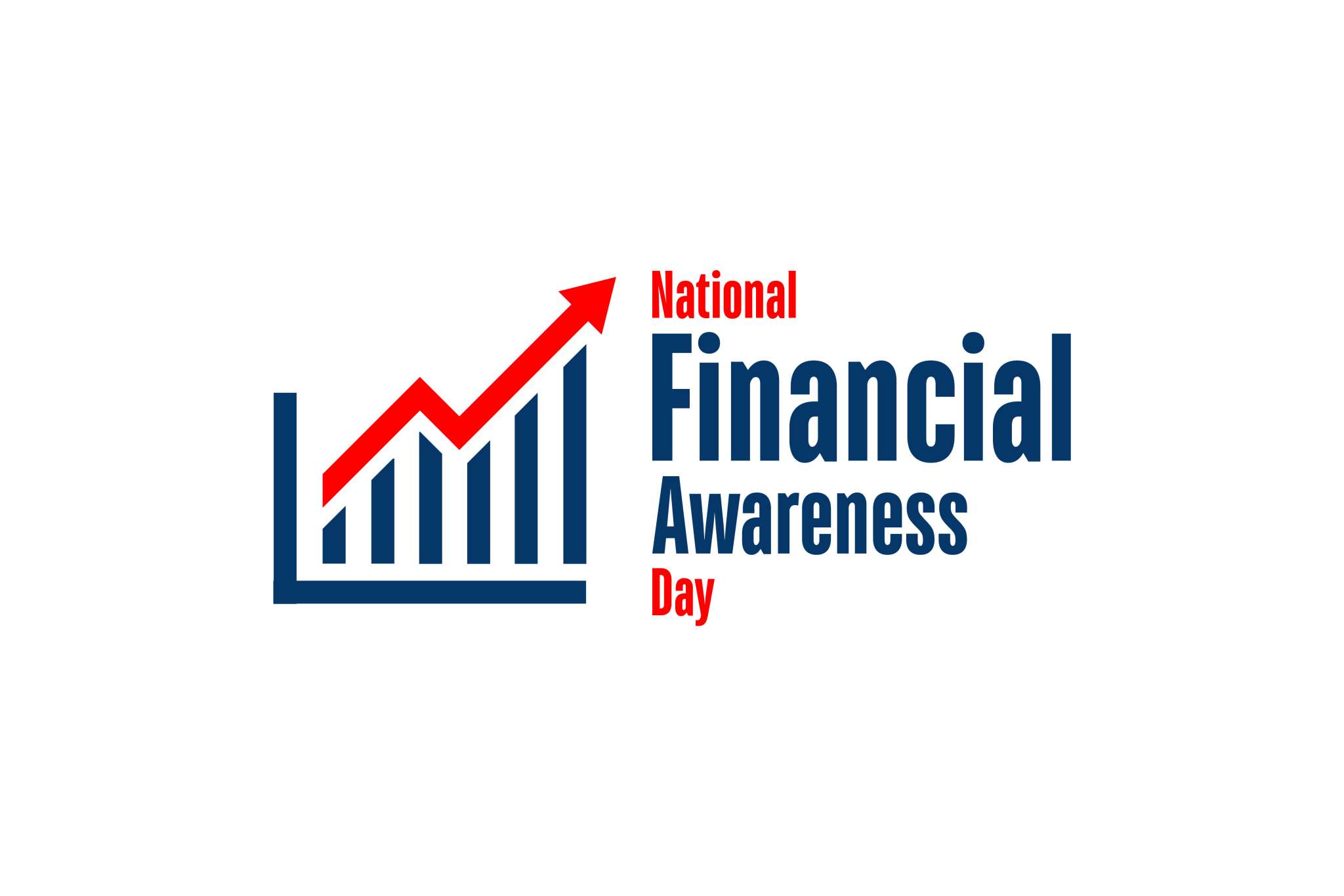Table of Contents
Photo Source: Adobe Stock
Financial awareness is the bedrock of informed decision-making and sustainable growth. Every year on National Financial Awareness Day, companies worldwide reflect on their fiscal practices and make changes to support their financial health.
Viktor Sobiecki, Chief Technological Officer of Digital Forensics Corp, a company that provides sextortion help, underscores the importance of National Financial Awareness Day, stating, “Understanding a company’s financial standing is the first step toward making sound business decisions.”
Financial awareness is more than just number-crunching. It predicts the trajectory of a company’s success, impacting everything from day-to-day operations to long-term strategic planning. Below, discover your guide to the top insights for sustainable business finances for National Financial Awareness Day and beyond.
1. Understand The Significance of Financial Awareness
Effective financial awareness plays a pivotal role in a business’s sustainability and growth. By comprehensively analyzing financial data and assessing key metrics, companies can gain valuable insights into their financial health.
“Recognizing the importance of financial awareness in business is like having a map for making smart decisions and ensuring long-term growth,” says Brandon Adcock, Co-Founder and CEO of Nugenix, a company known for their Instaflex Advanced joint supplement. “It’s the key to maneuvering through obstacles and seizing opportunities effectively.”
Businesses that prioritize financial awareness have a competitive edge because they can proactively identify opportunities for growth and swiftly address potential challenges. Understanding financial statements, cash flow projections, and performance indicators empowers businesses to make informed decisions that align with their objectives.
2. Generate Revenue Streams
Diversifying revenue streams is essential for building a resilient business model that can weather economic fluctuations. By exploring different income sources such as product sales, services, subscriptions, or royalties, companies can reduce reliance on a single revenue stream and buffer against revenue volatility.
“Diversifying revenue streams is like planting multiple seeds for business success. By exploring different income sources, companies can build a sturdy financial fortress that withstands market fluctuations and fuels growth,” advises Bryan Welker, VP of Growth Marketing at L-Nutra, a company known for their proprietary Fasting Mimicking Diet (FMD), Prolon.
A diversified revenue portfolio mitigates risks while opening new avenues for scalability and innovation within a business. Tapping into various revenue streams allows companies to adapt to changing market dynamics and explore new opportunities for expansion.
3. Budgeting and Expense Management
Setting clear financial goals, tracking expenses diligently, and establishing budgetary controls are budgeting best practices that businesses can use to maintain financial discipline and allocate resources efficiently.
Scott Chaverri, CEO of Mito Red Light, a company that specializes in red light therapy devices, explains, “Budgeting and managing expenses is like creating a savings plan for your business. It helps you allocate resources wisely, cut unnecessary costs, and make sure your money is working for you in the best possible way.”
Careful expense management prevents wasteful spending and enables companies to prioritize investments that yield the highest returns. By effectively monitoring and controlling expenses, businesses can optimize their financial resources and allocate funds strategically toward projects and initiatives that promise significant returns on investment.
4. Cash Flow Management
Tracking incoming and outgoing cash lets businesses effectively plan for expenses, investments, and contingencies. Maintaining a healthy cash flow ensures that companies have the financial liquidity necessary to seize opportunities and navigate challenges.
“Managing cash flow is like balancing your checkbook for your business. It means keeping track of the money coming in and going out, so you can make sure there’s always enough to cover expenses and seize opportunities when they arise,” says George Fraguio, Vice President of Bridge Lending at Vaster.
A well-managed cash flow safeguards against cash shortages as it allows businesses to capitalize on growth prospects with confidence. Use cash flow management to create the financial liquidity your business needs to seize opportunities, invest in expansions, and weather unexpected financial challenges.
5. Investment Strategies
Strategic investment decisions can significantly impact a company’s financial health and future prospects. Whether it’s investing in new technologies, expanding into new markets, or diversifying product offerings, smart investments can drive profitability and sustainable growth.
“If you save a dollar, you’ll drop a dollar to the bottom line. But if you save a dollar and you reinvest that back into the business in a disciplined way, a returns-based way, that dollar is actually worth a lot more in the future. And that’s really what running a business is all about,” says Cathie Lesjak, CFO of HP.
Sound investment decisions bolster a company’s resilience and position it for long-term success in a competitive market landscape. Through conducting thorough market research and risk assessments, businesses can identify lucrative investment opportunities that align with their strategic objectives.
6. Create Debt Management Strategies
Evaluating debt obligations, renegotiating terms where possible, and prioritizing debt repayment help companies alleviate financial burdens and enhance their creditworthiness.
“Careful debt management allows companies to optimize financial resources and weather economic uncertainties,” advises Cody Candee, Founder and CEO of Bounce.
A disciplined approach to debt management promotes financial health and empowers businesses to pursue growth opportunities with confidence. Strategic debt management strategies help businesses avoid excessive debt accumulation and maintain healthy financial ratios.
7. Establish Emergency Funds
Establishing emergency funds is a prudent financial practice that shields businesses from unforeseen circumstances and financial crises. Setting aside funds specifically for emergencies helps companies mitigate the impact of unexpected expenses, such as sudden market downturns, equipment failures, or natural disasters.
Emergency funds serve as a financial cushion that provides stability and peace of mind during turbulent times. Preparedness through emergency funds bolsters resilience and enables businesses to navigate challenging circumstances without compromising their long-term stability.
8. Plan for Tax Season
Photo Source: Adobe Stock

Strategic tax planning is integral to maximizing savings and optimizing financial resources for businesses. When they leverage available tax deductions, credits, and incentives, companies can minimize tax liabilities and retain more capital for growth and investment. Strategic tax planning optimizes financial resources and enhances profitability in the long and short term.
Engaging in proactive tax planning ensures compliance with tax regulations while strategizing to capitalize on tax-saving opportunities. Efficient tax planning reduces tax burdens and positions businesses to make informed financial decisions in alignment with their tax obligations, making it a doubly beneficial practice.
9. Prioritize Financial Accountability and Transparency
Promoting financial accountability and transparency is key to building trust with stakeholders and investors. By maintaining clear and accurate financial records, businesses demonstrate a commitment to integrity and sound financial management practices.
“A well-constructed numerical estimate is worth a thousand words,” says Charles Schultze, former Director of the US Bureau of Budget.
Transparency in financial reporting not only fosters credibility but also enhances the company’s reputation and ability to attract potential investors. A culture of accountability and transparency instills confidence among investors and stakeholders, reinforcing the company’s commitment to ethical business practices.
10. Follow a Regular Financial Analysis Schedule
Regular financial analysis provides businesses with valuable insights into their financial performance and areas for improvement. Analyzing key financial metrics, profitability trends, and operational efficiencies lets companies make data-driven decisions to enhance financial health and operational effectiveness.
“Regular financial check-ups are like giving your business a health check. They help you keep track of how your finances are doing and make sure you’re on the right path for growth and success,” shares Jim Mitchell, Chief Growth Officer of Awesome CX by Transcom, a company that specializes in customer experience solutions.
Conducting periodic financial reviews enables businesses to identify strengths and weaknesses, refine strategies, and adapt to evolving market conditions. Continuous financial analysis empowers businesses to stay agile, responsive, and well-positioned to capitalize on growth opportunities in dynamic market environments.
11. Practice Risk Management
Effective risk management is essential for safeguarding business finances and minimizing potential threats to operations. Companies that identify and assess risks associated with market volatility, economic uncertainties, cybersecurity threats, and other external factors can implement strategies to mitigate risks proactively.
Dorothy Pun, Founder of Knitup, a creation-to-manufacturing company that specializes in custom knit sweaters, blankets, and more, shares, “Implementing robust risk management strategies acts as a shield against uncertainty, safeguarding businesses and fortifying their financial resilience in volatile market landscapes.”
Developing risk management protocols and contingency plans ensures that businesses are prepared to address unforeseen challenges and protect their financial assets. Proactive risk management is a proactive approach that fortifies business resilience and enhances long-term sustainability in an ever-evolving business landscape.
12. Continuously Learn and Adapt
Embracing a culture of continuous learning and adaptation in financial practices is paramount for businesses to stay agile and thrive in a dynamic marketplace. By encouraging ongoing professional development, staying abreast of industry trends, and adapting to changing financial landscapes, companies can proactively position themselves for success.
“Learning and adapting are like keys to unlocking success in business. Evolving with new knowledge and trends helps companies stay ahead of the curve and thrive in a changing world,” states Bob Craycraft, CEO of Cadence Petroleum.
Learning from past experiences, industry best practices, and emerging innovations equips businesses with the knowledge and skills needed to navigate uncertainties and capitalize on opportunities. A commitment to continuous learning fosters innovation, resilience, and a competitive edge in an evolving business environment.
Discover the Building Blocks for Sustainable Growth
National Financial Awareness Day reminds businesses of all sizes of the critical role financial awareness plays in driving sustainable growth and prosperity. From revenue diversification to risk management, companies can fortify their financial foundations and set themselves up for long-term success.
“Setting a strong financial foundation is like building a bridge to lasting success,” explains Brianna Bitton, Co-Founder of O Positiv, a company that specializes in women’s vitamins. “Through implementing smart strategies and staying vigilant, businesses pave the way for resilience and prosperity in the long run.”
Prioritizing financial health and adopting proactive financial strategies not only enhances profitability but also ensures resilience in the face of economic uncertainties. As businesses continue to navigate challenges and opportunities, cultivating financial awareness remains a cornerstone for building a sustainable path toward prosperity and longevity.


